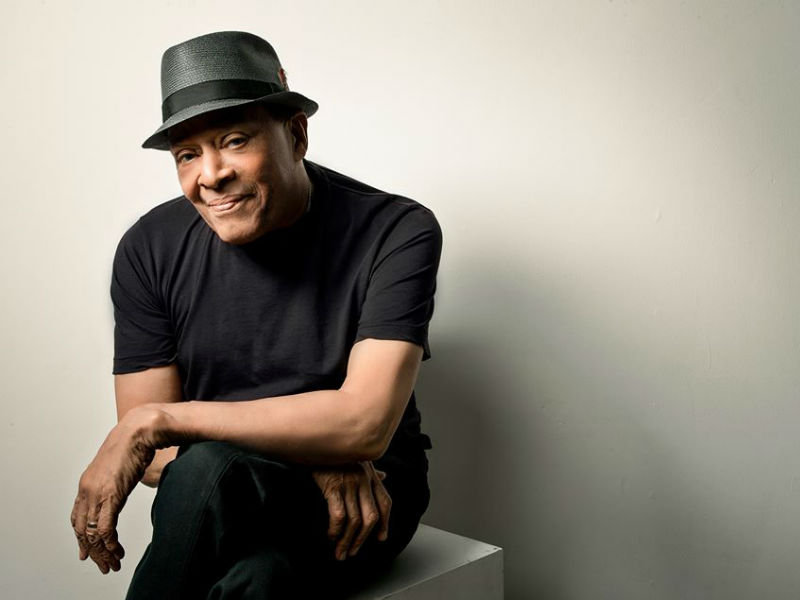The United Performing Arts Fund is underway with a fund drive that is critically important to the world of performing arts in Milwaukee.
Last year, UPAF donated over $9.1 million to performing arts groups, both big and small. Without that money, our cultural landscape would be very dim.
As a part of the fund drive, UPAF got world-famous singer Al Jarreau, a Milwaukee native, to write an op-ed piece to the Milwaukee Journal Sentinel about the value of arts. That piece ignited a spark that leaders in Milwaukee should heed.
"The arts can save our families and our communities," Jarreau wrote. "A young person who has a trumpet or ballet slippers or some paint brushes in his bag is probably not also carrying a weapon. As a community, working together, we must collaborate to bring arts and culture back into the schools."
School budgets have been cut year after year in Milwaukee, and one of the first cuts is always in the art offerings – music, visual art, dance and singing – dropped in favor of the common core classes.
UPAF has an arts education program in which grants are provided to performing arts organizations who have educational missions and provide age-appropriate shows in schools. Last year, 15 organizations split just under $500,000.
Deanna Tillisch is the president and CEO of UPAF, and she is attuned to the value of arts education.
"The research is clear: Arts education and performing arts exposure helps increase students’ engagement in the classroom," she said. "Exposing young people to the arts improves their ability to manage and understand their actions, and strengthens their confidence and attitudes overall. UPAF is proud to be a part of a community and continues to increase its support of arts education year after year."
The Missouri Department of Education conducted a statewide study on the value of arts education and found that "greater arts education led to fewer disciplinary infractions, higher attendance, graduation rates and test scores."
Wisconsin has a miserable record of providing public support for all arts, both performance and education. We rank 49th with an expenditure of just 14 cents per capita in support for the performing arts, and cuts in state aid have prompted cutbacks in arts education.
So the question becomes not whether the arts are good for children in schools. The evidence is clear that they are. Rather, the question is how to we find funds to create a significant increase in artistic opportunities for our children?
The answers are not easy, but they can be boiled down to one thing: money. Everybody agrees that arts education can have a measurable and positive impact on education. How do we put our money where our mouths are?
First of all, we need to elect politicians who make funding for the arts a priority in their campaigns and administrations. These candidates should be asked the tough questions and must be encouraged to provide answers that are supportive of the arts and arts education. For example, there has been little or no commitment to the arts from either our governor, county executive or mayor. The arts community needs to get after these people.
There also needs to be a determination of what’s important in our schools. It can be suggested that it’s better for a kid to learn to play a trumpet or paint with watercolors than to learn what year the Spanish Armada sailed or even when the Mayflower landed.
Reading and math are critical, of course, but arts education may well be as important as history or diagramming a sentence or learning how to dissect a frog or reading "Moby Dick" and writing a book report. The arts have an advantage over those others, proven by research, that students who received more arts education did better on standardized tests, improved their social skills and were more motivated than those who had reduced or no access.
Perhaps UPAF could find a way to allocate significantly more money to actual arts education in schools. They fund performances that are shown to kids but watching and doing are two different things. If the money can’t be found to hire teachers in our schools, perhaps a fund could be established to pay for professional performers to do the teaching.
Artists, musicians, actors and dancers could all use extra money. None of those are a ticket to riches, and if the money could be found to pay them, it’s the kind of instruction that would show incredible benefits.
"Please consider this," Jarreau wrote. "For the sake of our own sane and healthy survival here on Earth, we must learn to understand each other better. And the arts are a common language for communicating toward this goal. Any piece of art is a translated and crystallized version of our human emotions. Joy, sadness, pain and even boredom."
With a history in Milwaukee stretching back decades, Dave tries to bring a unique perspective to his writing, whether it's sports, politics, theater or any other issue.
He's seen Milwaukee grow, suffer pangs of growth, strive for success and has been involved in many efforts to both shape and re-shape the city. He's a happy man, now that he's quit playing golf, and enjoys music, his children and grandchildren and the myriad of sports in this state. He loves great food and hates bullies and people who think they are smarter than everyone else.
This whole Internet thing continues to baffle him, but he's willing to play the game as long as OnMilwaukee.com keeps lending him a helping hand. He is constantly amazed that just a few dedicated people can provide so much news and information to a hungry public.
Despite some opinions to the contrary, Dave likes most stuff. But he is a skeptic who constantly wonders about the world around him. So many questions, so few answers.







